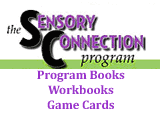SENSORY TRAININGS
Regions Hospital
Sensory Modulation Approaches to Mental Health Treatment
May 3rd, 2015
St. Paul, MN
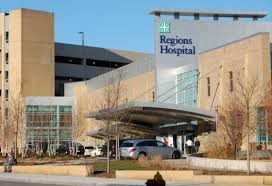 In early May I had the incredible opportunity to present a Sensory Connection Program conference to the Occupational Therapists at Regions Hospital. What was exciting for me is that the therapists at this hospital were already implementing sensory modalities and assessments into their programs with great success, and they were hungry for more information to boost their skills and to make their programs even better. Angela Balzarini-Leonhart, who invited me out to St. Paul, is now employed by the hospital as a full time MH/SI consultant. With the great support of her superiors, Angie is leading the way for what could be a model of integrated sensory-based treatment in mental health.
In early May I had the incredible opportunity to present a Sensory Connection Program conference to the Occupational Therapists at Regions Hospital. What was exciting for me is that the therapists at this hospital were already implementing sensory modalities and assessments into their programs with great success, and they were hungry for more information to boost their skills and to make their programs even better. Angela Balzarini-Leonhart, who invited me out to St. Paul, is now employed by the hospital as a full time MH/SI consultant. With the great support of her superiors, Angie is leading the way for what could be a model of integrated sensory-based treatment in mental health.
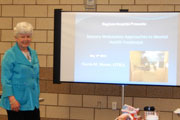 Participants at the training were occupational therapists from various units at Regions Hospital along with some invited guests from their affiliates. The focus of the conference was on getting everyone even more comfortable using sensory techniques and knowledgeable about the power and potential of the senses as treatment modalities. Armed with background information on the senses and new ideas, the therapists will be able to use sensory assessments and sensory input activities even more effectively and feel comfortable imparting the information to other clinicians as well as clients.
Participants at the training were occupational therapists from various units at Regions Hospital along with some invited guests from their affiliates. The focus of the conference was on getting everyone even more comfortable using sensory techniques and knowledgeable about the power and potential of the senses as treatment modalities. Armed with background information on the senses and new ideas, the therapists will be able to use sensory assessments and sensory input activities even more effectively and feel comfortable imparting the information to other clinicians as well as clients.
 Every Sensory Connection Program Training begins with consultation work in order to make the most of the conference and to start the process of integrating ideas for sensory-based treatment. Since one of their goals for the training was to increase referrals for sensory consultations, I worked with Angie and her Sensory Committee on developing a pamphlet to give to physicians, psychiatrist and other clinicians describing symptoms and situations which might indicate that the patient might benefit from additional sensory assessment and treatment. Another goal was to begin using the swings that were purchased by the hospital but never incorporated into treatment; therapists did not feel comfortable enough that they would be used safely and effectively. Together we brainstormed ideas on the safe use of the swing and came up with a self-rating form to be used before and after the use of the swing. We also came up with some basic guidelines for swinging. A third goal was to expand their repertoire of sensory assessments and to learn how best to integrate them into their sensory consultations. Time was spent in the training reviewing current assessments, both formal and informal, including a newly released Adult/Adolescent Sensory History developed by Teresa May-Benson and her colleagues at the Spiral Foundation.
Every Sensory Connection Program Training begins with consultation work in order to make the most of the conference and to start the process of integrating ideas for sensory-based treatment. Since one of their goals for the training was to increase referrals for sensory consultations, I worked with Angie and her Sensory Committee on developing a pamphlet to give to physicians, psychiatrist and other clinicians describing symptoms and situations which might indicate that the patient might benefit from additional sensory assessment and treatment. Another goal was to begin using the swings that were purchased by the hospital but never incorporated into treatment; therapists did not feel comfortable enough that they would be used safely and effectively. Together we brainstormed ideas on the safe use of the swing and came up with a self-rating form to be used before and after the use of the swing. We also came up with some basic guidelines for swinging. A third goal was to expand their repertoire of sensory assessments and to learn how best to integrate them into their sensory consultations. Time was spent in the training reviewing current assessments, both formal and informal, including a newly released Adult/Adolescent Sensory History developed by Teresa May-Benson and her colleagues at the Spiral Foundation.
More about Regions Hospital and this event here.... (PDF Format)
ACN 10th Cognitive Symposium
Global Strategies for Integrating and Interpreting Cognition
November, 2014
Rodondo Beach, CA
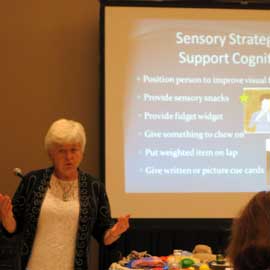 This November I had the honor of presenting at the 10th Cognitive Symposium dedicated to strengthening the knowledge and clinical application of the Allen Disabilities Model and the promotion of the "best ability to function" in persons with cognitive impairments and their caregivers.
This November I had the honor of presenting at the 10th Cognitive Symposium dedicated to strengthening the knowledge and clinical application of the Allen Disabilities Model and the promotion of the "best ability to function" in persons with cognitive impairments and their caregivers.
I am a longtime supporter and also researcher of the Cognitive Disabilities Model and I feel the information this model provides regarding our clients is essential to assuring the best treatment possible. Whenever I provide trainings on sensory approaches to treatment, part of my mission is to educate participants on the importance of understanding a person's level of cognition in order to provide the proper cues, environment, emotional support, and physical support necessary for that person to follow through with coping strategies and sensory interventions. I believe some of our best treatment results from using treatment that embraces both models; this was the theme of my presentation at the symposium.
Click here for summary of ACN presentation (pdf format)
Tomah Wisconsin VA Medical Center
Sensory Connection Program Training
September, 2013
SCP Treatment Approaches for Mental Health & Trauma Informed Care
SCP Treatment Approaches for Geriatric Care, Dementia and TBI
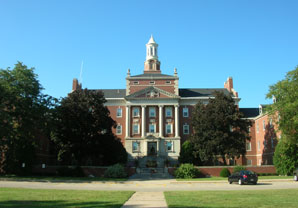 Two years ago I went to Tomah Wisconsin to the VA Medical Center to provide two days of multidisciplinary training and consultation on sensory approaches to treatment. The occupational therapists, recreational therapists, nurses and other staff at the hospital and outpatient treatment centers began implementing and having success with sensory approaches. This September I was asked to return to Tomah to provide two more trainings to help educate as many staff members as possible about sensory-based treatment in order to get everyone "on board" and supportive of these techniques and to take the use of sensory approaches to the next level. Not only was this an honor to have the opportunity to contribute to the treatment of our veterans but it was extremely exciting to me to know that clinicians were having success with sensory approaches and wanted further training.
Goals for the training included learning about ways to make better use of their Snoezelen Room, making the best use of a newly developed sensory cart, increasing the use of sensory approaches on the geriatric and long-term care units, integrating sensory approaches and calming techniques into outpatient and substance abuse treatment and helping veterans struggling with PTSD and trauma issues. Staff members from all disciplines, including secretarial staff and housekeeping, were invited so that everyone involved with the veterans would feel comfortable with sensory approaches, sensitive to sensory issues and ready to include the use of appropriate sensory input ideas into every aspect of daily interactions with the veterans.
Two years ago I went to Tomah Wisconsin to the VA Medical Center to provide two days of multidisciplinary training and consultation on sensory approaches to treatment. The occupational therapists, recreational therapists, nurses and other staff at the hospital and outpatient treatment centers began implementing and having success with sensory approaches. This September I was asked to return to Tomah to provide two more trainings to help educate as many staff members as possible about sensory-based treatment in order to get everyone "on board" and supportive of these techniques and to take the use of sensory approaches to the next level. Not only was this an honor to have the opportunity to contribute to the treatment of our veterans but it was extremely exciting to me to know that clinicians were having success with sensory approaches and wanted further training.
Goals for the training included learning about ways to make better use of their Snoezelen Room, making the best use of a newly developed sensory cart, increasing the use of sensory approaches on the geriatric and long-term care units, integrating sensory approaches and calming techniques into outpatient and substance abuse treatment and helping veterans struggling with PTSD and trauma issues. Staff members from all disciplines, including secretarial staff and housekeeping, were invited so that everyone involved with the veterans would feel comfortable with sensory approaches, sensitive to sensory issues and ready to include the use of appropriate sensory input ideas into every aspect of daily interactions with the veterans.
More about this event here.... (pdf file format)
Wisconsin Women's Resource Center (WWRC)
Sensory Connection Training for Wisconsin Prison System Women's Mental Health Units, Winnebago, WI
June 12-14 2012
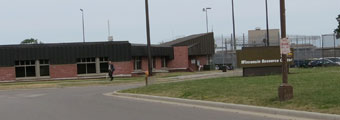 This training was designed to educate the staff of WWRC on sensory approaches to helping women on their high acuity, moderate acuity and specialized mental health treatment units. The focus of the training was on assisting staff to become comfortable with sensory techniques for self-regulation, to begin to recognize sensory issues that could be contributing to maladaptive behaviors and to learn about sensory connections to trauma sensitive treatment. Another purpose of this training was to assist in the development of calming rooms by educating staff on the purpose and best use of these rooms and how to implement the safe use of sensory tools and equipment in these rooms.
This training was designed to educate the staff of WWRC on sensory approaches to helping women on their high acuity, moderate acuity and specialized mental health treatment units. The focus of the training was on assisting staff to become comfortable with sensory techniques for self-regulation, to begin to recognize sensory issues that could be contributing to maladaptive behaviors and to learn about sensory connections to trauma sensitive treatment. Another purpose of this training was to assist in the development of calming rooms by educating staff on the purpose and best use of these rooms and how to implement the safe use of sensory tools and equipment in these rooms.
The embracement of sensory approaches to treatment and the education of staff in these techniques are ways that WWRC demonstrates leadership in the prison system consistent with programs that have been shown to be both innovative and effective according to research by the National Institute of Justice. More about this event here.... (pdf file format)
The Sensory Connection to Helping Preschoolers with Special Needs
Pelham NH Special Education Preschool, Pelham, NH
January 23, 2012
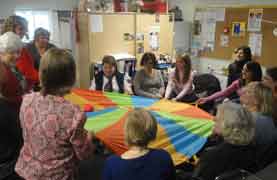 This workshop focused on sensory interventions and self-regulation strategies. The recently developed SCP Tool Time Activity Protocol and Handouts were introduced. During a practice lab, participants paired up and used these handouts along with pictures of helpful coping strategies to develop a "What Helps? Poster" based on a case example of a challenging student. A mock Sense-ability Group, with activities adjusted for preschoolers, was used to demonstrate the power of a well orchestrated group process. In order to learn to appreciate the information provided by the Sensory Profile, the participates had fun determining their own sensory styles as they learned about the proclivities of being a Bystander, Seeker, Sensory, or Avoider.
This workshop focused on sensory interventions and self-regulation strategies. The recently developed SCP Tool Time Activity Protocol and Handouts were introduced. During a practice lab, participants paired up and used these handouts along with pictures of helpful coping strategies to develop a "What Helps? Poster" based on a case example of a challenging student. A mock Sense-ability Group, with activities adjusted for preschoolers, was used to demonstrate the power of a well orchestrated group process. In order to learn to appreciate the information provided by the Sensory Profile, the participates had fun determining their own sensory styles as they learned about the proclivities of being a Bystander, Seeker, Sensory, or Avoider.
More about this event here....(pdf file format)
All on Board: Using Sensory Approaches for Emotional Regulation and Crisis Intervention
Sensory Connection Program Conference
Manchester, NH
September 16 & 17, 2011
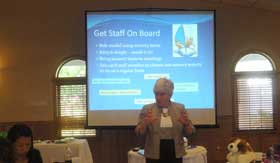 The focus of this conference was on practical ideas for the implementation of sensory approaches. Participants came from a variety of settings including psychiatric care, VA hospitals, school systems and private practice. Participants learned how the research of Stephen Porges and the Social Engagement System informs more effective approaches for crisis intervention. Activities such as making an individual sensory kit, games and the Sensory Connection Self-Regulation Workbook were used as interactive examples of group and individual treatment.
The focus of this conference was on practical ideas for the implementation of sensory approaches. Participants came from a variety of settings including psychiatric care, VA hospitals, school systems and private practice. Participants learned how the research of Stephen Porges and the Social Engagement System informs more effective approaches for crisis intervention. Activities such as making an individual sensory kit, games and the Sensory Connection Self-Regulation Workbook were used as interactive examples of group and individual treatment.
More about this event here.....(pdf file)
Chauncy Hall and NFI MA Affiliates
Sensory Connection Program Training
Westborough, MA
May 4, 2011
Sensory Approaches to Adolescent Treatment
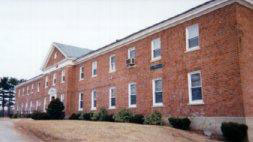 Chauncy Hall is a residential treatment program for
adolescents referred by the MA Department of Mental
Health. This full day of training was for their staff as well
as staff from other NFI programs throughout the state.
The focus of the training was to educate staff about
sensory modalities and to make them comfortable in using
these sensory activities in a variety of ways including crisis
intervention, individual treatment, group treatment and
also in the everyday milieu.
Chauncy Hall is a residential treatment program for
adolescents referred by the MA Department of Mental
Health. This full day of training was for their staff as well
as staff from other NFI programs throughout the state.
The focus of the training was to educate staff about
sensory modalities and to make them comfortable in using
these sensory activities in a variety of ways including crisis
intervention, individual treatment, group treatment and
also in the everyday milieu.
More about this event here....(pdf file format)
The Sensory Connection Program Conference
Marlborough MA
November 12th -13th 2010
Groundwork for Psychosocial Self-Care
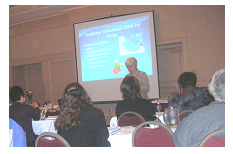 This was the first "open" conference presented by Karen and the first opportunity to present the Sensory Connection Program in its entirety. Participants learned about the components of the SCP: assessment, group treatment, individual treatment and environmental interventions including the development of sensory rooms. Background education on the senses and pertinent research was presented in a way that participants could return to their own settings and provide education and in-services using the program materials. Neurological underpinnings and recent research explaining the responses to sensory modalities and approaches were discussed throughout the conference.
This was the first "open" conference presented by Karen and the first opportunity to present the Sensory Connection Program in its entirety. Participants learned about the components of the SCP: assessment, group treatment, individual treatment and environmental interventions including the development of sensory rooms. Background education on the senses and pertinent research was presented in a way that participants could return to their own settings and provide education and in-services using the program materials. Neurological underpinnings and recent research explaining the responses to sensory modalities and approaches were discussed throughout the conference.
More about this event here....(pdf file format)
Northampton VA Medical Center
Northampton, MA
April 27th 2010
Sensory Approaches to Treatment
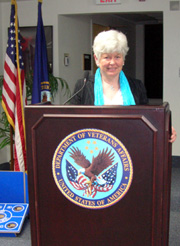 This training was designed to help multidisciplinary staff of the Veterans' Hospital understand the value of using sensory approaches to facilitate comfort, self-control and function in patients ranging from returning veterans to those in the geriatric unit. Mental health problems included acute illness, PTSD, Traumatic Brain Injury, substance abuse and chronic mental illness.
This training was designed to help multidisciplinary staff of the Veterans' Hospital understand the value of using sensory approaches to facilitate comfort, self-control and function in patients ranging from returning veterans to those in the geriatric unit. Mental health problems included acute illness, PTSD, Traumatic Brain Injury, substance abuse and chronic mental illness.
Sensory approaches are unique in that they begin by facilitating self-awareness, which is a key to being able to move on to self-regulation and self-care. This training focused on ways to promote awareness of sensory responses and identify helpful as well as aversive sensory input. The critical need for sensory sensitive environments was emphasized and ideas were provided to develop supportive environments, sensory rooms, and comfort spaces.
More about the Event here.....(pdf file format)
NHOTA Spring Event 2009
Lake Opechee Inn, Lakeport, NH
April 4, 2009
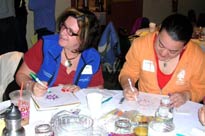 From Self Care to the Care of Our Clients!
From Self Care to the Care of Our Clients!
This all day workshop for the NHOTA Spring Event was focused on the use of sensory activities for our own self-care as a way of developing a better understanding of the ways they can benefit and enrich the lives of our clients. Participants had a great time exploring sensory items and sharing ideas.
More about the Event here.....(pdf file format)
Southwestern Virginia Mental Health Institute
Marion, Virginia
October 31, 2007
Sensory Connection Program Presention:
Trauma Informed Care and Restraint Reduction
 This full day multidisciplinary training included: Introduction to Sensory Approaches to Treatment, Diagnostic Concerns, Trauma Informed Care, Restraint/Seclusion Reduction, Interdisciplinary Use of Sensory Modalities and Activities, and Environmental Enhancement Including Comfort Spaces and Rooms.
This full day multidisciplinary training included: Introduction to Sensory Approaches to Treatment, Diagnostic Concerns, Trauma Informed Care, Restraint/Seclusion Reduction, Interdisciplinary Use of Sensory Modalities and Activities, and Environmental Enhancement Including Comfort Spaces and Rooms.
More about this Event here....
Massachusetts DMH Symposium
Westborough State Hospital
April 25, 2006
Sensory Modulation Symposium for Occupational Therapy in Mental Health
 This symposium presented by Tina Champagne and Karen Moore was held for all the occupational therapy practitioners from DMH facilities in the state to prepare them to be resource professionals for sensory modulation treatment in their own facilities.
This symposium presented by Tina Champagne and Karen Moore was held for all the occupational therapy practitioners from DMH facilities in the state to prepare them to be resource professionals for sensory modulation treatment in their own facilities.
More about this Event here....
